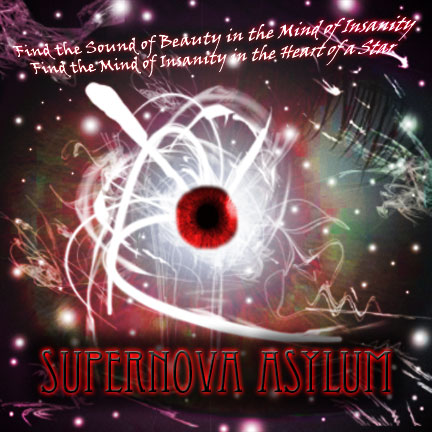Album: Embryonic
Artist: The Flaming Lips
Genre: Alternative / Indie Rock
Length: 70:17
Release Date: October 13th, 2009
Label: Warner Bros.
Producer: The Flaming Lips, Dave Fridmann, Scott Booker
Double albums are a rare sight in the musical landscape, and with good reason. A certain set of associations and expectations are usually attached to works that get the double album “label”; we expect the long road to the album’s completion to be riddled with variety, spontaneity, and epic might, as to compensate for the many hours they extract from our lives. As far as my knowledge extends, no double album has ever reached these proverbial stars, and in fact they tend to almost always come crashing back into the ground; the band’s attempts to fit this mold are almost always the hurdles that make the album tedious or even unlistenable. To this day I still don’t know the ingredients necessary to craft a truly compelling double album, but at least I know that The Flaming Lips are just as clueless as I am.
…which isn’t to say that they don’t try, of course. Notable attempts have been clearly been made to alter the signature sound of this psychedelic indie rock band into something different for their latest opus, Embryonic. It is perhaps the “busiest” work they’ve performed, not in terms of technicality but in the stacked layers of various samples, keyboard drones, and other sci-fi miscellany compiled within each track. This, compacted together with unorthodox drum and guitar production values, does indeed craft something different; the problem is that it also comes across as over-produced and over-done. Explaining the cacophonous sounds portrayed by such songs as “See the Leaves” and “Watching the Planets” is difficult, and may need to be experienced first-hand. Beauty is in the eye of the beholder, after all, but in my eyes there is really no beauty here. Rather, when all of the various elements in each song collide, they most often react negatively and combust, destroying any chance at attaining the simplicity that might have been.
The complex, multi-layered style of the album almost seems to be compensating for the lack of actual dynamics within; strip away the random beep-boops, bells, and whistles, and you’ll find rather basic indie rock songwriting, with endlessly looped melodies and lyrics. This isn’t inherently a problem, mind you; many bands of this irk do not strive for detailed song-writing, but instead succeed in luring listeners into a sense of tranquility before enveloping them into a haunting, black void of calm. Unfortunately, The Flaming Lips spoil their chances at this form of success, too; even the most stripped-down, beautifully simple songs like “Evil” are poisoned by unnecessary sound bites haphazardly scattered into the mix, and by the end the listener is left with the distressing feeling that nothing was ultimately accomplished. With no chance to get lost in the music, nor much reward for paying close attention, there is little to reap from listening to Embryonic.
This missteps may have been forgivable if the album were a decent length, properly paced so that one could soak in the most memorable moments and have them still pulsing through the brain by the time the album accelerated to its climactic end. Here, my friends, is where the hideous double album demons rear their ugly heads, because the “epic” length utterly destroys this album. Without much in the way of variety or story progression to spice up the album or give it a theatrical punch, it devolves into what is essentially a marathon of tedium…and keep in mind that 70 minutes is actually pretty short for a double album! It begs the question, “Why didn’t they just cut out half the tracks and market it as a standard release?”
Well according to the band itself, the record was created in an attempt to solve their “dilemma” of what to include on each preceding album. They furthermore assert that the album’s creation was in debt older classics like The Beatles whose albums were decidedly “un-focused” and attempted a wide variety of styles.
This, handily, explains most of the issues I’ve pointed out up to now. Essentially, then, there is no over-arching theme or story to the songs at hand, but rather just a jumbled compilation of ideas, smashed together then split into two discs. Such is not the proper way to create an epic; such creations demand structure and coherence, something Embryonic clearly lacks. Even as a “variety sampler” I feel that it fails upright in the face of the band’s ambition. Not only do I not feel a sense of variety and open-endedness running through the album, but I also feel that its inability to strive for and achieve a certain goal dooms it from the beginning. As far as I’m concerned, there’s nothing wrong with being “focused”; it’s what has allowed many a band to become associated with certain emotions or themes. Embryonic, to me, leaves no lasting emotional impression of this sort; it’s as bland as un-buttered bread, and not nearly as delicious.
.jpg)



EYE.jpg)